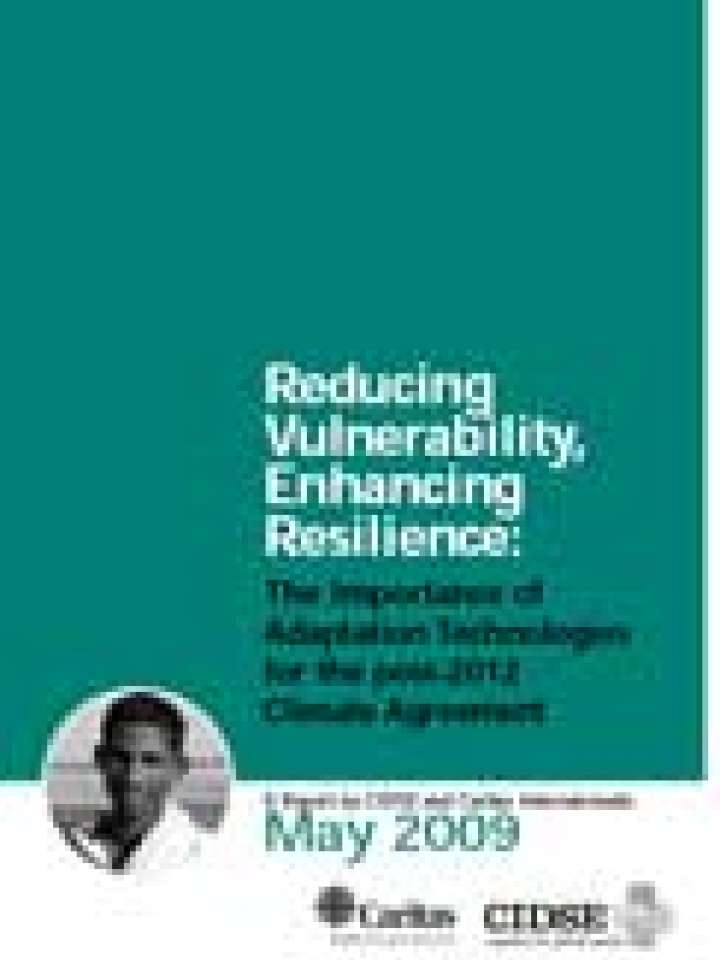Reducing vulnerability, enhancing resilience: the importance of adaptation technologies for the post-2012 climate agreement
This report is aimed at raising awareness among Parties to the United Nations Framework Convention on Climate Change (UNFCCC) negotiations for the post 2012 climate change agreement about the importance of adaptation technologies for adaptation to climate change and sustainable poverty reduction, and the role that international cooperation can play in this process.
The report provides an overview of existing knowledge on adaptation technologies including definitions and types of adaptation technologies by category and vulnerable sectors, including coastal zones, energy, health, early warning and forecasting, infrastructure, terrestrial ecosystems, water resources, and agriculture, livestock and fisheries. It draws on the experience of CIDSE and Caritas Internationalis partners in developing countries to illustrate the different ways in which vulnerable communities are coping with the impacts of climate change by the application of specific technologies.
The second section of this report looks at the status of adaptation technologies in international climate negotiations under the UNFCCC and shows how these are failing to adequately address the issue. It identifies the main challenges that need to be overcome to ensure that the post-2012 agreement effectively supports adaptation technologies, and provides a set of key recommendations to Parties to the Convention.
Explore further
